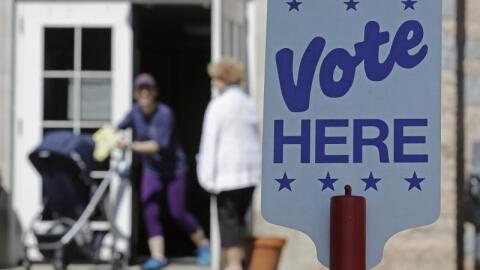-
House Republicans rushed to approve legislation on Wednesday that would impose new proof-of-citizenship requirements ahead of the midterm elections, a Trump administration priority that faces blowback in the Senate.
-
North Carolina election officials are asking thousands of voters to add missing ID information before they head to the polls. Those who don't comply will be asked to cast provisional ballots.
-
NPR's Scott Detrow talks with Reps. Brian Fitzpatrick, R-Pa., and Tom Suozzi, D-N.Y., about current congressional negotiations regarding funding for the Department of Homeland Security.
-
A handyman from Florida who received a pardon from President Trump for storming the U.S. Capitol on Jan. 6, 2021, was convicted on state charges of child sex abuse and exposing himself to a child.
-
President Trump has threatened to attack Iran after its brutal crackdown on protesters, but the U.S. is also seeking a deal with Iran
-
Democratic leaders say the fallout will be in rural communities on everything from water to planning for disasters.
-
The Stonewall National Monument in New York City is a landmark of the LGBTQ+ rights movement.
-
Needle & Skein in Minnesota came up with the pattern for a red knitted 'Melt the ICE' cap that is going viral in the knitting community.
-
A contentious House hearing with senior immigration leaders did little to bring lawmakers closer on a deal to fund the Department of Homeland Security.
-
NPR's Steve Inskeep speaks with Democratic Rep. Mike Quigley of Illinois about DHS funding and ICE reforms ahead of Friday's deadline to avert a partial government shutdown.
-
The attorney general's appearance before the House Judiciary Committee comes one year into her tenure, a period marked by a striking departure from traditions and norms at the Justice Department.
-
The White House excluded Democratic leaders from a traditionally bipartisan meeting for governors. Maryland Governor Wes Moore said he was also disinvited from a dinner.






